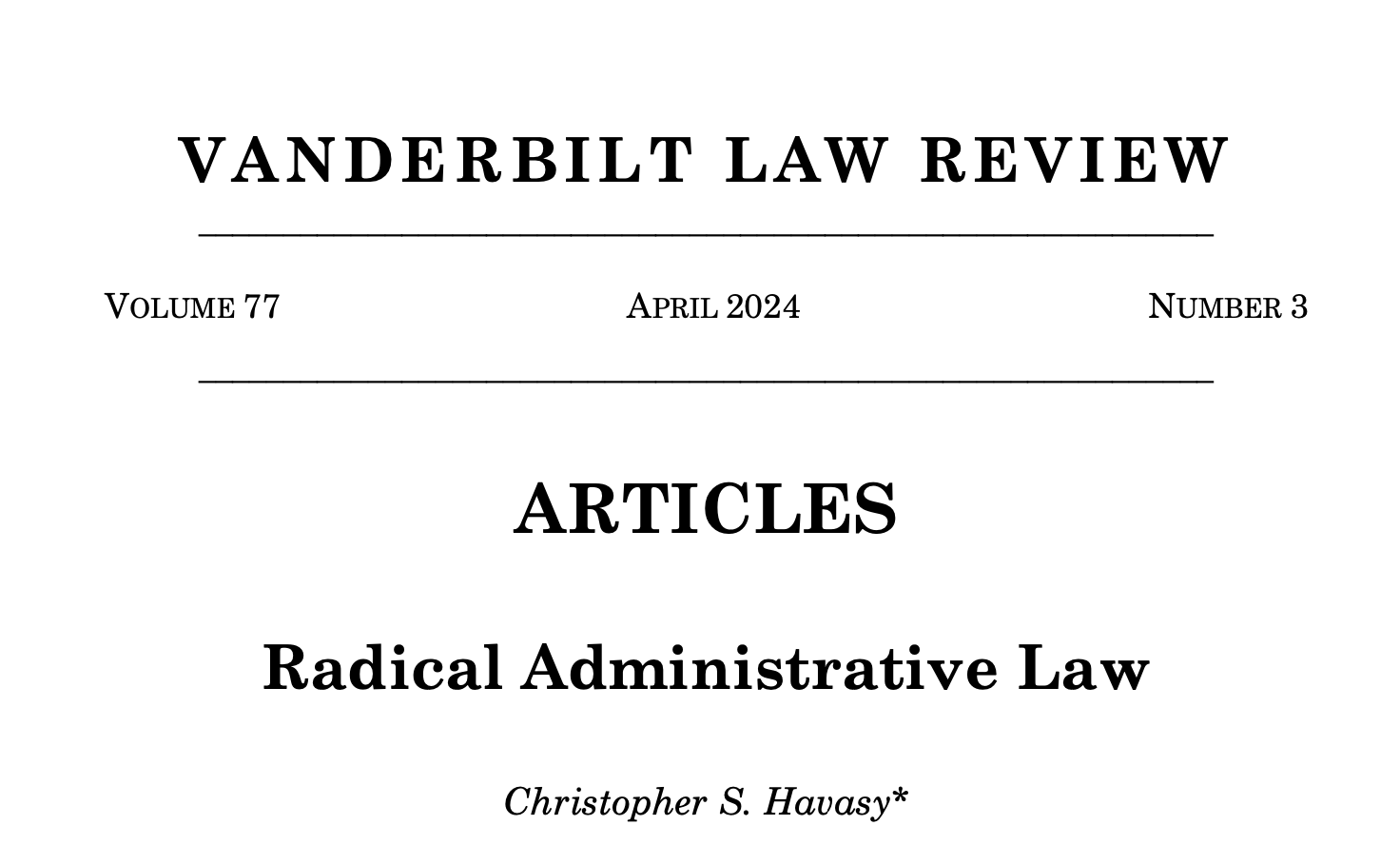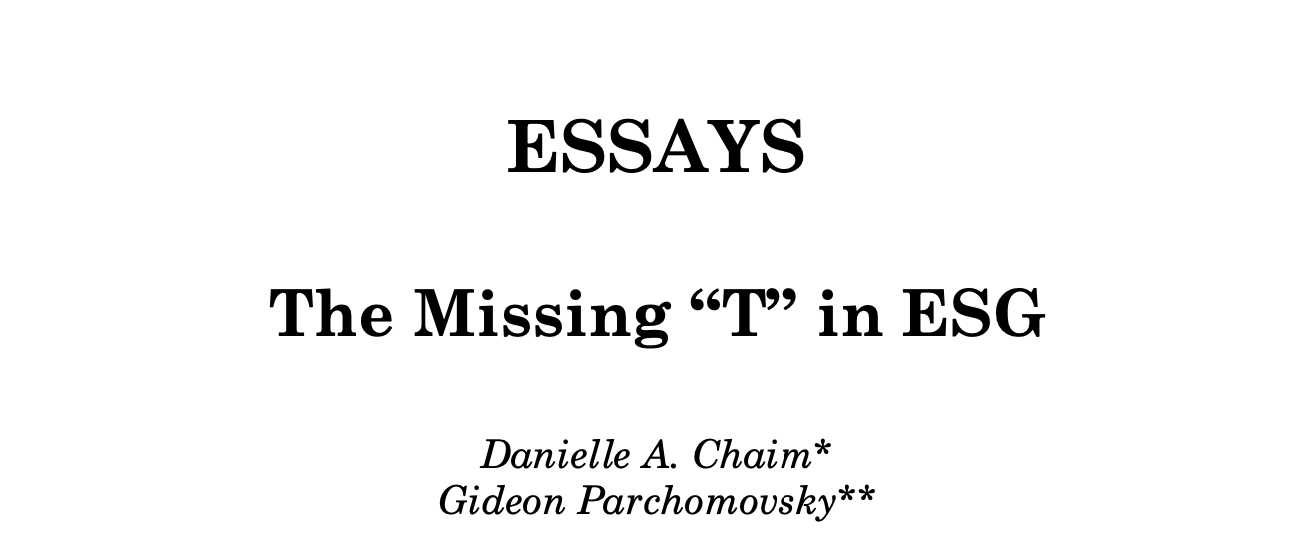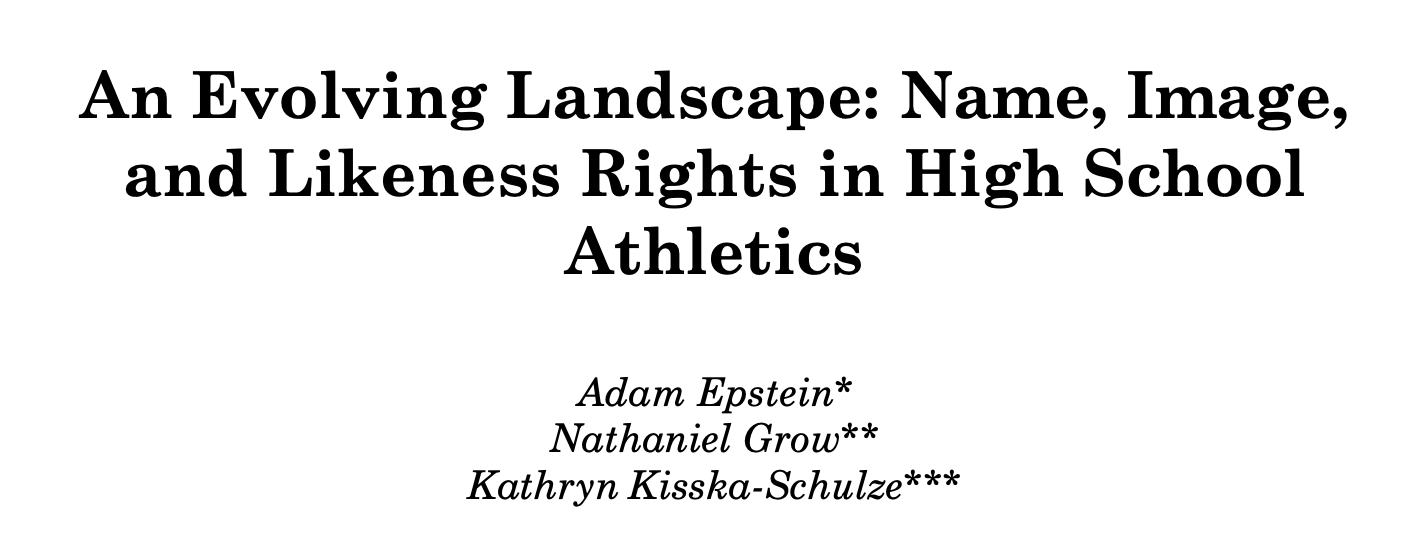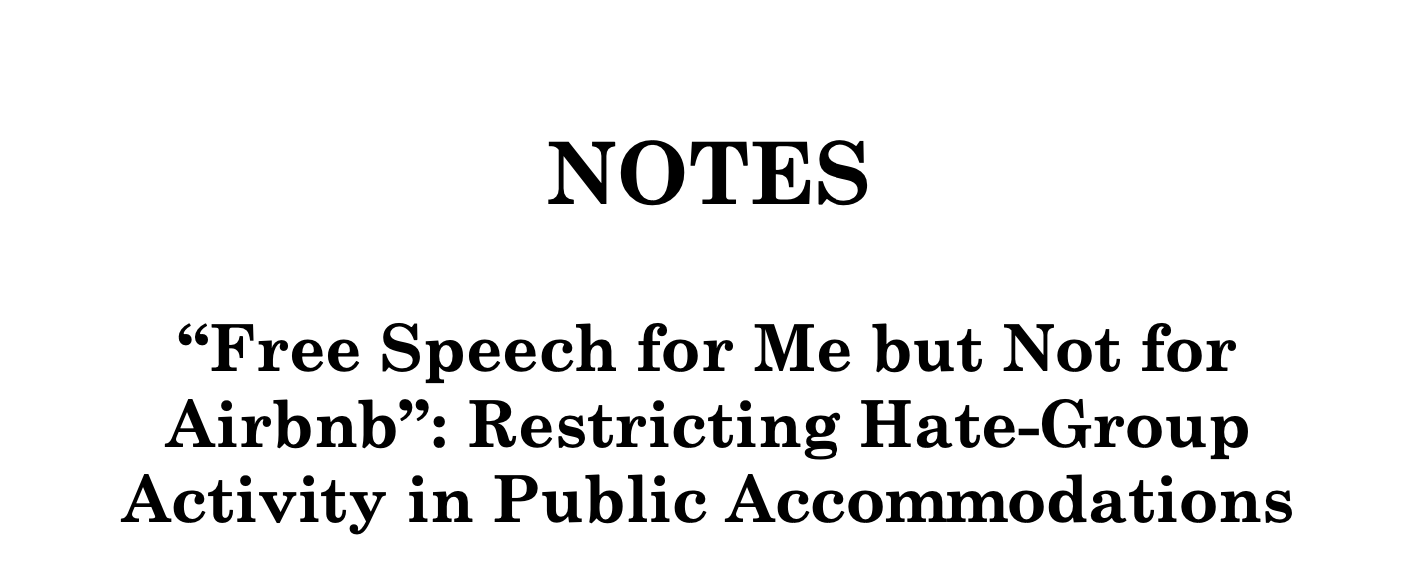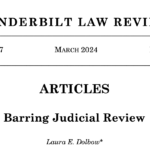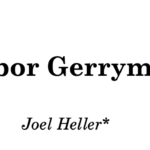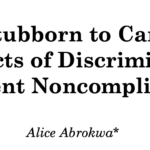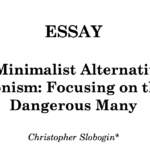Volume 77 Category
Dead Bodies as Quasi-Persons
May. 22, 2024—Ela A. Leshem | 77 Vand. L. Rev. 999 This Article argues that American law treats dead bodies as quasi- persons: entities with a moral status between things and persons. The concept of quasi-personhood builds on dead bodies’ familiar classification as quasi- property. Just as quasi-property implicates only a subset of the rights usually associated...
Anti-Transgender Constitutional Law
May. 22, 2024—Katie Eyer | 77 Vand. L. Rev. 1113 Over the course of the last three decades, gender identity anti- discrimination protections and other transgender-supportive government policies have increased, as government entities have sought to protect and support the transgender community. But constitutional litigation by opponents of transgender equality has also proliferated, seeking to limit or...
Choosing Sides: On the Manipulation of Civil Litigation
May. 22, 2024—Yotam Kaplan & Ittai Paldor | 77 Vand. L. Rev. 1211 Our litigation system is broken. Scholars have long warned that professional litigants, such as debt-collecting firms, insurance companies, and commercial landlords, enjoy immense and unfair advantages over private individuals. What has gone unnoticed is professional litigants’ ability to manipulate their litigatory position—that is, to...
Needful Rules and Regulations: Originalist Reflections on the Territorial Clause
May. 22, 2024—Anthony M. Ciolli | 77 Vand. L. Rev. 1263 There are few areas where the current state of the law is as inconsistent, incoherent, and intellectually bankrupt as the law of U.S. territories. The seminal cases in the field are the infamous Insular Cases, where the Supreme Court of the United States held that the...
Protecting Protected Characteristics: Statutory Solutions for Employment Discrimination Post-Bostock
May. 22, 2024—Chase Mays | 77 Vand. L. Rev. 1303 Title VII of the Civil Rights Act of 1964 prohibits employment discrimination on the basis of race, color, religion, sex, or national origin. Significantly, these protected characteristics are undefined, and judicial interpretations of race, sex, and national origin have allowed employers to lawfully discriminate against proxies for...
On the Defensive: Analyzing Insurers’ Duty to Defend Pharmaceutical Companies for Contributing to the Opioid Epidemic
May. 22, 2024—Madison Perry | 77 Vand. L. Rev. 1349 Opioids have had a devastating impact on the United States. They have drained governmental agencies’ resources, decreased property values, and destroyed families and entire communities. A growing number of individuals, local governments, and states have filed lawsuits, aiming to hold pharmaceutical companies accountable for their negligent contributions...
Radical Administrative Law
Apr. 20, 2024—Christopher S. Havasy | 77 Vand. L. Rev. 647 The administrative state is under attack. Judges and scholars increasingly question why agencies should have such large powers to coerce citizens without adequate democratic accountability. Rather than refuting these critics, this Article accepts that in scrutinizing the massive powers that agencies hold over citizens, these critics...
Mass Tort Bankruptcy Goes Public
Apr. 20, 2024—William Organek | 77 Vand. L. Rev. 723 Large companies like 3M, Johnson & Johnson, Purdue Pharma, and others have increasingly, and controversially, turned from multidistrict litigation to bankruptcy to resolve their mass tort liability. While corporate attraction to bankruptcy’s unique features partially explains this evolution, this Article reveals an underexamined driver of this trend...
The Missing “T” in ESG
Apr. 20, 2024—Danielle A. Chaim & Gideon Parchomovsky | 77 Vand. L. Rev. 789 Environmental, social, and governance (“ESG”) philosophy is the zeitgeist of our time. The rise of ESG investments came against the perceived failure of the government to adequately promote socially important goals. And so, corporations are now being praised and credited for stepping up...
An Evolving Landscape: Name, Image, and Likeness Rights in High School Athletics
Apr. 20, 2024—Epstein, Grow, & Kisska-Schulze | 77 Vand. L. Rev. 845 Amateur sports have entered a changing landscape. The onset of Name, Image, and Likeness (“NIL”) opportunities at the college level has prompted over half of state high school athletic associations to likewise permit high school student-athletes to pursue similar financial opportunities. The purpose of this...
“Free Speech for Me but Not for Airbnb”: Restricting Hate-Group Activity in Public Accommodations
Apr. 20, 2024—Sabrina Apple | 77 Vand. L. Rev. 891 As digital services grow increasingly indispensable to modern life, courts grow inundated with novel claims of entitlement against these platforms. As narrow, formalistic interpretations of Title II permit industry leaders to sidestep equal access obligations, misinformed interpretations of First Amendment protections allow violent speech and conduct to...
Exasperated But Not Exhausted: Unlocking the Trap Set by the Exhaustion Doctrine on the FDA’s REMS Petitioners
Apr. 20, 2024—Michael Krupka | 77 Vand. L. Rev. 937 When health is at stake, bureaucratic delays can be disastrous. This is especially true in the field of pharmaceutical regulation. Fortunately, concerned parties—ranging from research institutions and universities to doctors and pharmaceutical companies—can file citizen petitions to urge the Food and Drug Administration (“FDA”) to regulate potentially...
Barring Judicial Review
Mar. 20, 2024—Laura E. Dolbow | 77 Vand. L. Rev. 307 Whether judicial review is available is one of the most hotly contested issues in administrative law. Recently, laws that prohibit judicial review have sparked debate in the Medicare, immigration, and patent contexts. These debates are continuing in challenges to the recently created Medicare price negotiation program....
The Labor Gerrymander
Mar. 20, 2024—Joel Heller | 77 Vand. L. Rev. 401 The foundational metaphor of federal labor law is “industrial democracy.” But like any good metaphor, it is subject to overuse. The National Labor Relations Act (NLRA) grants employees the right to have a say in the decisions that govern their working lives through union representation and collective...
Too Stubborn to Care for: The Impacts of Discrimination on Patient Noncompliance
Mar. 20, 2024—Alice Abrokwa | 77 Vand. L. Rev. 461 The role of implicit racial biases in police interactions with people of color has garnered increased public attention and scholarly examination over time, but implicit racial bias in the healthcare context can be as deadly, particularly when it intersects with ableism and sexism. Researchers have found that...
The Minimalist Alternative to Abolitionism: Focusing on the Non-Dangerous Many
Mar. 20, 2024—Christopher Slobogin | 77 Vand. L. Rev. 531 In The Dangerous Few: Taking Seriously Prison Abolition and Its Skeptics, published in the Harvard Law Review, Thomas Frampton proffers four reasons why those who want to abolish prisons should not budge from their position even for offenders who are considered dangerous. This Essay demonstrates why a...






